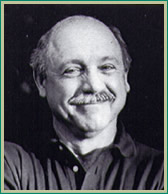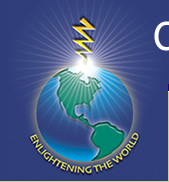
Hearts and Minds in Habitual Behavior
|
 |
|
| Domenico Piazza Senior Associate |
Human behavior has always been a bit of a high-wire act. We receive information in the form of objective facts, as well as unsolicited but valuable feelings that emerge from primitive areas of our brains. They are often conflicting, at least on the surface. Our internal dialogues are usually fueled by the alternate versions of reality presented by both our cognitive and emotive domains. Hence the acrobatic metaphor.
The ways we choose to use the combined forces of thought and feeling create our worldview, which becomes recognizable in our intellectual and emotional beliefs. As we practice our beliefs about the world, we form habits of thought, action, and being. These habits become embedded through regular usage and soon become identified as “truth” or simply as “who I am.” We know how difficult it is to change established habits. Like much automatic behavior, the challenge is that it becomes less visible to us, and we often act without thinking.
Habitual behaviors serve many important purposes in life. In fact, it would hardly be possible to get through the average day without them. Think of the intricate embedded memories that assist you in driving a car or playing piano! There are, however, habits that no longer serve us. Many of them were instilled in us many years ago when, perhaps, they served some useful purpose. Many of our actions are driven by outmoded catalysts. Substituting new behaviors for those that are no longer appropriate contributes to our evolving hearts and minds—that is, to a more balanced life.
In The Power of Habit, Charles Duhigg examines research relating to the structure of habits as a neurological phenomenon. His findings inform our conversation about mind and heart. The research defines habitual behavior as the intersection of very different energies of human experience. Neuroscience has identified a cycle of habitual behavior and implies ways in which habits can be changed when they fail to serve us in a healthy way. The cycle is a three-stage process beginning with the “trigger,” which sets off the cycle and is impossible to prevent. The “trigger” seems to emanate from primitive areas of the brain. Feelings of fear or intense craving are examples of these kinds of energies. They arise unbidden and can cause considerable disruption. Following quickly on the heels of the trigger is the “routine,” that is, the action that automatically ensues. The routine is what we're used to doing when a particular trigger goes off. In many instances, it is not a conscious decision. The final stage is “reward.” All our habitual behaviors offer a reward for taking the action embedded in the routine. These rewards may be life-enriching and lasting or temporary and self-defeating.
The research strongly suggests that while the trigger is uncontrollable, we can institute change in our choice of routines. Changing the routine disrupts the habit. If we replace unhealthy routines with healthy ones, the rewards become more positive. Continued practice of the new routine replaces an undesirable behavior with a better one. The conversation of minds and hearts is made richer with our understanding that the internal dialectic can be a force for life enhancement.
We are often pulled in one direction by our feelings and another by empirical data. At times, what we feel trumps what we know, particularly when we are invested in our emotional narratives. It is clear that, for many people, belief drives behavior even in the absence of evidence, or even in the presence of contradictory evidence. Currently, for instance, much faith-based commentary ignores well established scientific facts in order to adhere to long practiced systems of belief. Anecdotal experiences and personal revelation co-opt responsible examination of reliable evidence in confronting the great challenges we face. Yet even neuroscientists recognize that our emotive experiences play useful purposes in achieving a balanced life.
The great literary, artistic, philosophical, and mythical traditions have much to add to the human conversation. Indeed, we fail to feel fully human with only empirical data to guide us. The subjective forces in life serve us best when seen to be metaphorical, artistic, or theoretical in nature rather than as “truths.” Truths are, in essence, closed to examination and discourse. Metaphors, artistic expression, and theory provide the language for a continued and deepening investigation into the mysteries of human existence.
![]()
Center for Empowered Leadership ®
Email: info@cfel.org
Phone: 1.609.259.7911
